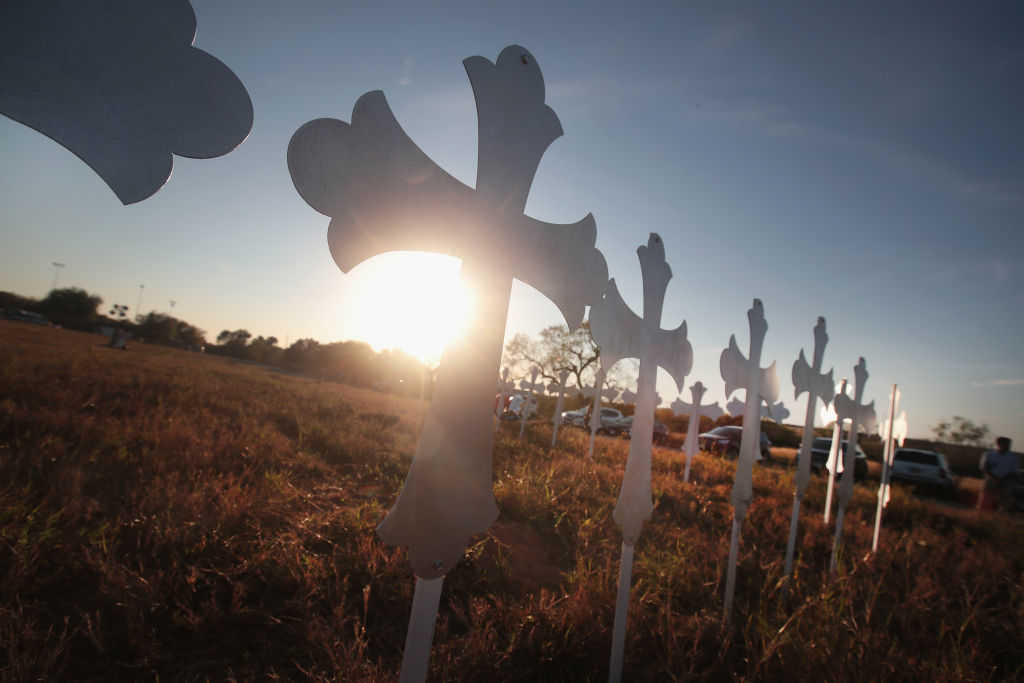There is an increasingly popular liberal critique of Christianity that seems to be popping up from every angle at the moment, and it is directed at the very epicenter of the faith – the Cross of Christ.
In the most recent expounding of Jesus’ death as nothing more than a figurative illustration, a popular New York theologian has become the latest to deny the literal death and resurrection of Jesus.
In an interview with the New York Times, the principal of Union Theological Seminary, the Rev. Dr. Serene Jones declared that the story of the cross was “all over the place,” adding that “those who claim to know whether or not it happened are kidding themselves.”
So, the question is: without this central tenet of the faith remaining intact, is the religion she is following Christianity at all?
The freedom to question
I am a big advocate of people questioning their faith. God is big and knowledgeable enough to handle our most profound and gnawing struggles with God’s word.
However, it is my belief that an existential faith crisis will be inevitable when all of these questions remain unanswered.
This appears to be exactly what Jones is encouraging others to do by, as a leader, putting forward ideas that directly contradict the most basic creedal declarations on penal substitution and atonement.
“Crucifixion is not something that God is orchestrating from upstairs,” Jones asserted in the interview. “The pervasive idea of an abusive God-father who sends his own kid to the cross so God could forgive people is nuts.”
While we could enter into a huge debate over her much-cited liberal argument that penal substitution amounts to some sort of “cosmic child abuse,” I think it more important to highlight some crucial concerns regarding the picking apart of Christian truths.
Break it down and build it up
I believe that “deconstructing” your faith into tiny pieces is a productive task as long as the end-point is a proactive reconstruction.
Indeed, leaving your once-held-dear beliefs shattered on the floor with no intention of gluing the fragments back together almost always sends people into a spiraling pit of cynicism, followed by a fleeting sense self-liberation before, finally, the hammer-blow of a profound loss of faith.
Unfortunately, this loss of faith in Jesus can come from a simple mismanagement of these untamed questions.
Have you ever over-discussed and over-thought so many fundamental questions of faith, life and meaning that you are left with the terrifying thought: “I have absolutely no idea what the point is of any of this anymore.” Yeh? I have. And it is not nice.
When you get to this deathly level of deconstruction, it feels like you are in a ship that is about to plunge to the depths. The problem is, of course, you’ve taken yourself to that place — a place that GOD wants to lift us out of with some simple, Biblical truths about who He is.
The main and the plain
In order to safeguard from this suffocating rabbit hole of unending questions, we must hold fast to some “main and plain” elements of Christianity.
The Christian faith is not “fluid.” It is the grit and bone of Christ’s death, it is the glorious mystery of his bodily resurrection, and it is the absolute certainty of the eternal life to come.
So, when everything appears to be shifting sands, these are the truths we can be sure of amid our deepest seasons of questioning.
We can also be sure of this:
God loves us. God sent his son to die for our sins so that we might be free, clean and forever with our Lord and creator.
We can be certain that this wonderful truth, enshrined in the Holy Spirit-inspired words of the Bible, is all embodied in the very person of Jesus Christ — a savior who is for us and the Lord of all who is offering an eternal invitation of “life in all its fullness” to absolutely everyone who wants it.
So, let’s be assured of these things — of His life, death and resurrection — while also making room for the deepest questions and wonderings that we, as people living in a confused and broken world, will always have with us.



